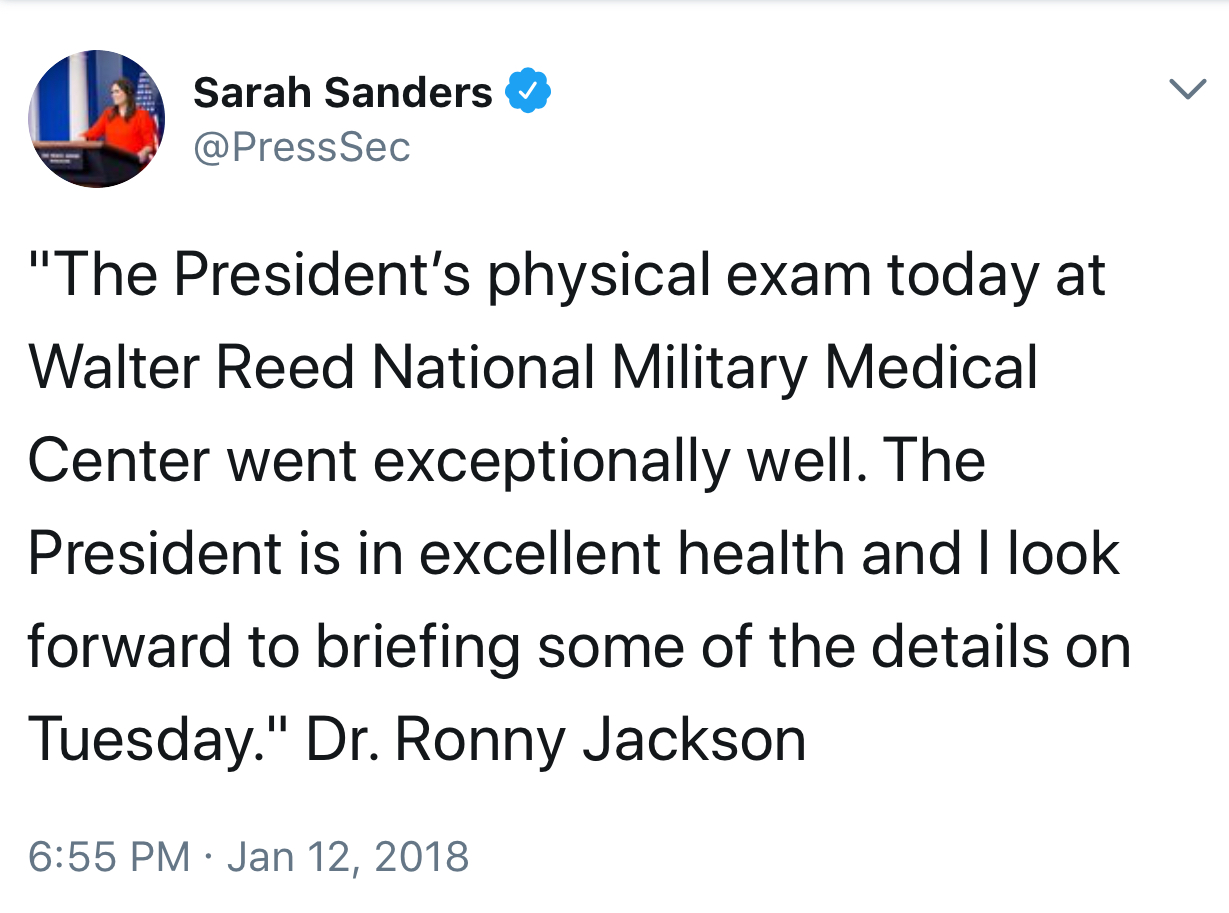With the focus in the last few weeks on President Trump’s first routine physical in office and the published description that Friday’s exam at Walter Reed National Military Medical Center went “exceptionally well,” the internet - in particular, twitter - went wild about such a description.
Taking a moment to google a prior report released from the same doctor would have revealed a consistent word selection (e.g. “excellent health”) throughout multiple administrations (See President Obama’s medical letter here).
Press Secretary Sarah Sanders had released the following statement:

The vitriolic refrain from many on social media took issue with use of the words “excellent” or “exceptionally well.” Putting aside the bipartisan politicization of medicine and weaponizing of health we have witnessed in the media and public sphere throughout the election campaign to current day, a recurring theme became apparent to me: that medical speak or language is distinct from everyday conversation word choices and routinely misinterpreted when viewed from that lens.
Seemingly, most professions tend to have their own language. Law does. Business does. Finance and its infinite terms certainly requires some vocabulary lessons to engage in discussion. Hollywood filmmaking from “greenlit” to “optioning content” to licensing terms run the gamut.
Inside baseball terminology can be so routine to the respective expert---no matter the field or industry--- that he/she is often unaware the nuances are not translating to the outsider. This is a rampant occurrence in medicine. Doctors are so used to seeing such a spectrum of suffering that when a patient is otherwise well, they have an entirely different perspective on the subject.
When many of their patients have debilitating or life-threatening conditions, it is quite common for a physician to have a different barometer. Since the aforementioned are usually described as being in “poor” or “fair” health, the majority at a routine physical who have minor, manageable chronic or no issues will be deemed in overall “good” or “excellent” health. When problems are well-controlled or stable, the patient can be in good or excellent condition. The preference is usually doctor-specific and is his/her consistent choice for a patient's baseline or interval changes. From our perspective, not being in fair to poor health is thrilling and “excellent” -- it is our wish for all of our patients.
Remember, in most aspects of medicine, pathology and disease take prominence and precedence. So, the flip side holds true. Being considered “unremarkable” or “unimpressive” in a medical exam, is something to rejoice in -- whereas in most other spheres it would be considered an insult. No one wants to be "impressive" or "remarkable" as a patient.
I recall a doctor telling a loved one not to worry about the chemotherapy as it is a “tolerable” one. What the patient heard was it won’t be so bad at all-- not at all an accurate portrayal of the profound unpleasant symptoms that would develop. What the doctor meant was it won’t be what kills you. Big difference.
So, as foreign as it might seem, being “boring” is fantastic news in the healthcare realm. Being in “excellent” or “very good” health, is a determination warranting much gratitude and appreciation when espoused by a physician. The hope is that you find the doctor who can translate their language into the most understandable one for you. Only then is that doctor-patient relationship the most therapeutic one possible.
Addendum (1/17/18 6:08pm): To read about the results of President Trump's first periodic medical examination while in the White House, click here.
Note(s):
To understand what the word “remission” really means, check out this article: Shannen Doherty Reveals Unspoken Truth About A Cancer Diagnosis.




